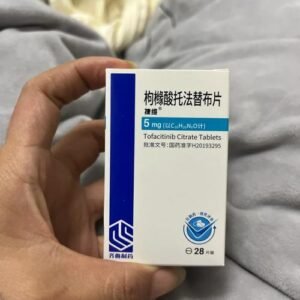Mogamulizumab 莫格利珠单抗
Mogamulizumab is a monoclonal antibody targeting CCR4, primarily used to treat relapsed or refractory cutaneous T-cell lymphoma (CTCL), including mycosis fungoides (MF) and Sézary syndrome (SS). It inhibits cancer cell migration and proliferation by blocking the CCR4 receptor, while simultaneously activating the immune system to eliminate abnormal cells.
Specific Efficacy and Function
Targeting the CCR4 Receptor
CCR4 is a specific marker found on the surface of certain T-cell lymphoma cells. Mogamulizumab binds to CCR4, blocking cancer cell migration to the skin and other organs while inducing antibody-dependent cellular cytotoxicity (ADCC), directly killing cancer cells.
Indications
Cutaneous T-cell lymphoma (CTCL): Indicated for adult patients, particularly those whose disease has relapsed or has not responded adequately to previous treatments (e.g., chemotherapy, radiotherapy). Mycosis fungoides (MF) and Sézary syndrome (SS): Moglizumab can prolong progression-free survival in these two rare subtypes when they are resistant to traditional treatments.
Clinical Effectiveness
Studies have shown that this drug can significantly reduce skin lesions, alleviate symptoms such as itching, and slow disease progression. Some patients can achieve long-term stable disease.
Precautions and Side Effects
Use strictly according to your doctor’s instructions: The dosage and duration of treatment should be adjusted according to your individual condition. Avoid stopping the drug or changing the regimen on your own.
Common Side Effects
Infusion reactions (fever, chills, etc.), rash, fatigue, and diarrhea.
Immunosuppression may increase the risk of infection; regular monitoring of blood counts and liver and kidney function is required.
Serious Risk Warning
May cause severe skin reactions (such as Stevens-Johnson syndrome) or autoimmune diseases (such as immune hepatitis). Seek medical attention immediately if these symptoms occur.
Medical Instructions
This drug is a prescription drug and should only be used after evaluation by a hematologist or oncologist. Regular follow-up is required during treatment to monitor efficacy and adverse reactions, and to adjust subsequent treatment plans based on the patient’s condition.
See more
Share:
Products
Our offers
Health Classification
Let us work together to protect precious health




























